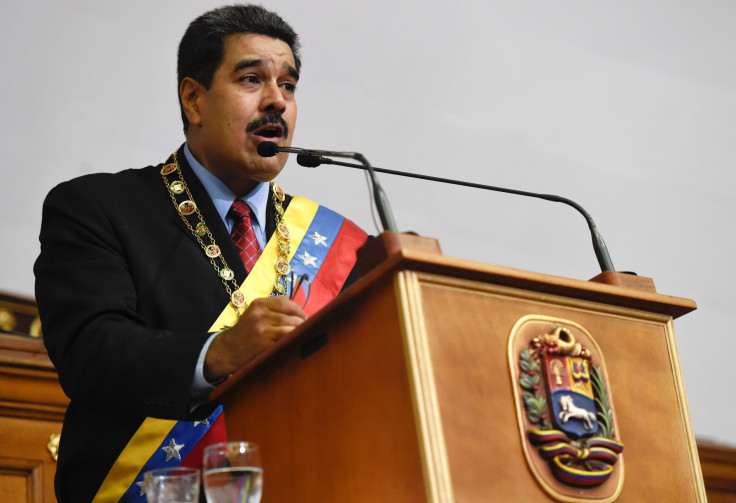Venezuela Declares Economic Emergency As Oil-Dependent Nation Grapples With Triple-Digit Inflation

Reeling under the impact of rapidly plummeting global oil prices, the Venezuelan government on Friday declared a 60-day nationwide economic emergency. The move came as official figures released by the country’s central bank showed that the Venezuelan economy had contracted by 4.5 percent in the first nine months of 2015, and that annual inflation had soared to a staggering 141.5 percent in September — the highest in the world.
“We are confronting a true storm,” Venezuelan President Nicolas Maduro reportedly said during his state of the nation address to Congress, made just hours after emergency was declared. “This is not Maduro’s storm, as some believe. It is a situation throughout the country that affects every Venezuelan family.”
The order, which was short on specific measures, imposes sweeping state control on businesses, industrial productivity and on electronic currency transactions. Additionally, the order also calls for domestic businesses to increase production of basic goods and seeks greater control of distribution networks.
“We want to reaffirm the people’s trust in the revolutionary government,” Luis Salas, Maduro’s top economic adviser, reportedly said in a televised address from the presidential palace as he read the emergency decree.
Venezuela has the world’s largest known oil reserves, and has been one of the hardest-hit OPEC nations as global oil prices crashed from over $90 a barrel two years ago to the current level of just below $30. As revenue from oil exports, which account for 95 percent of the South American nation’s revenue, drops, the local currency, the bolivar, has also plummeted in the black market.
While the central bank and the government have repeatedly blamed "illegal speculation" over the value of the currency for the prevailing crisis, analysts and political opponents have blamed stringent currency controls that restrict access to U.S. dollars and heavily subsidized fuel prices for the precarious state of the domestic economy.
“If you give in to the desire to have more and more bolivars with the same number of dollars, your bolivars are going to lose value,” Henry Ramos Allup, the speaker of the Venezuelan National Assembly and a leading opponent of Maduro, reportedly said after Maduro’s state of the nation address.
© Copyright IBTimes 2025. All rights reserved.






















